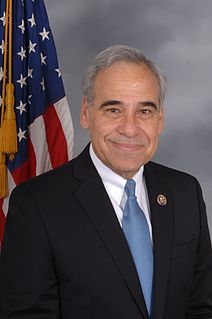A Quote by Thom Tillis
My Democratic colleagues should not forget that President Obama's Supreme Court nominees Sonia Sotomayor and Elena Kagan were both given up or down votes by Republicans.
Related Quotes
When President Donald Trump nominated Judge Neil Gorsuch to serve on the Supreme Court, I said that he deserved a fair hearing and a vote. I said this even though Senate Republicans filibustered dozens of President Obama's judicial nominees and then stopped President Obama's Supreme Court nominee, Judge Merrick Garland.
With Republicans in control of the Senate for the first time since Barack Obama took office, the president may find it harder to appoint left-wing lawyers to judgeships. Whether he compromises on some of his nominees, including any to the Supreme Court, may depend on the willingness of the new Republican majority to engage the president on judicial philosophy.
In 1987, I had my first opportunity to provide 'advice and consent' on a Supreme Court nominee. At that time, I stated that the qualifications essential for evaluating a nominee for the bench included 'integrity, character, legal competence and ability, experience, and philosophy and judicial temperament.' On that test, Elena Kagan fails.
During the Obama years, the Republicans have done an unprecedented amount of stonewalling on cabinet-and-below appointees. I would also argue that their war on judicial nominees has been way beyond what went before. Really, if the president nominated God to serve on the D.C. Court of Appeals, Mitch McConnell would threaten a filibuster.































